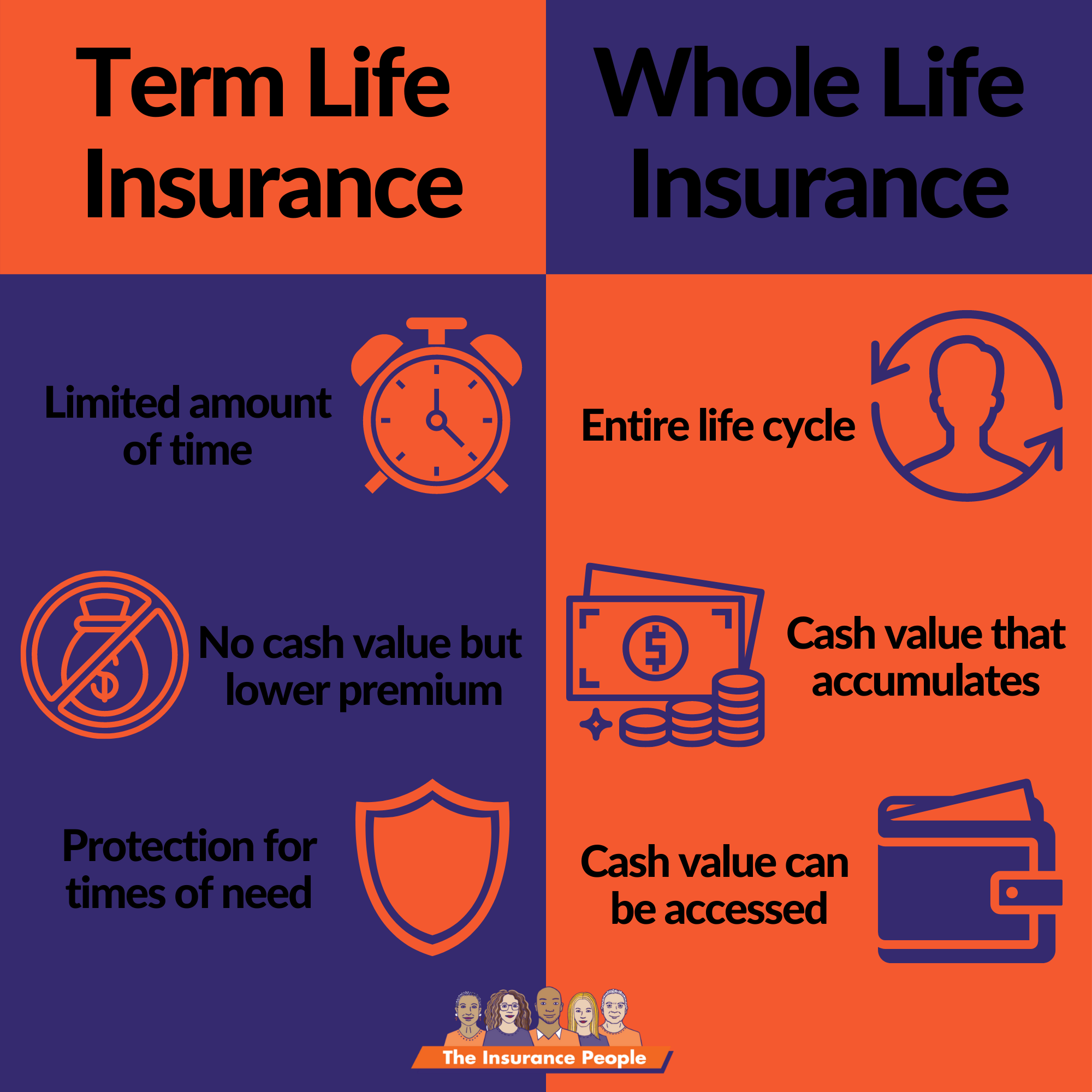ABCDou Insights
Exploring the world of news, trends, and information.
Whole Life Insurance: Your Ticket to Lifelong Peace of Mind
Unlock lifelong peace of mind with whole life insurance—discover how you can secure your financial future today!
Understanding the Benefits of Whole Life Insurance: A Comprehensive Guide
Whole life insurance is a type of permanent life insurance that offers numerous benefits which make it a viable option for individuals seeking long-term financial security. One of the primary advantages is the cash value accumulation; as you pay your premiums, a portion of that money goes into a cash value account, which grows over time at a guaranteed rate. This cash value can be borrowed against or withdrawn during your lifetime, making whole life insurance not just a safety net for your beneficiaries but also a potential source of funds for unexpected expenses or opportunities.
Another significant benefit of whole life insurance is the certainty it brings. Unlike term life insurance, which offers coverage for a specified term, whole life policies provide lifelong protection as long as premiums are paid. This can be especially valuable for estate planning, as it ensures that your loved ones are financially protected regardless of when you pass. In addition, the premiums are generally fixed, meaning that your payments will not increase as you age, providing financial predictability in your planning.

Whole Life Insurance vs. Term Life Insurance: Which is Right for You?
When considering Whole Life Insurance versus Term Life Insurance, it's essential to understand the fundamental differences between these two types of policies. Whole Life Insurance provides coverage for the insured's entire life, as long as premiums are paid, and typically includes a cash value component that grows over time. This can make it an attractive option for individuals seeking lifelong financial security and a way to accumulate savings. On the other hand, Term Life Insurance is designed to provide coverage for a specific period, usually ranging from 10 to 30 years, and is often more affordable than whole life policies. Many people opt for term insurance when they need temporary coverage, such as while raising children or paying off a mortgage.
Deciding which insurance is right for you depends on your financial goals and circumstances. If you want permanent coverage and are interested in building cash value, then Whole Life Insurance may be the better choice. Conversely, if you require affordable premiums and coverage that aligns with your current responsibilities, Term Life Insurance could be more suitable. To summarize:
- Whole Life Insurance: lifelong coverage, cash value component, higher premiums.
- Term Life Insurance: temporary coverage, no cash value, lower premiums.
Ultimately, assessing your long-term financial plan and personal needs will guide you in making the best choice.
How Whole Life Insurance Can Secure Your Family's Financial Future
Whole life insurance is a crucial financial tool that can provide unwavering support for your family’s financial future. Unlike term life insurance, which covers you for a specified period, whole life insurance offers lifelong coverage as long as premiums are paid. This means that in the event of your passing, your loved ones will receive a guaranteed death benefit, allowing them to maintain their lifestyle and meet financial obligations. Additionally, whole life policies build cash value over time, acting as a forced savings account that can be tapped into during emergencies or used to fund significant expenses such as education, a home, or retirement.
Investing in whole life insurance is not just about protection; it's about creating a legacy. The cash value component of the policy grows at a predictable rate, providing a stable asset that can be borrowed against or withdrawn if needed. Furthermore, the death benefit paid out to beneficiaries is typically tax-free, ensuring that your loved ones receive the full value of your policy. By choosing whole life insurance, you are taking a proactive step towards securing your family's financial future, ensuring they are shielded from uncertainty and can thrive even in challenging times.